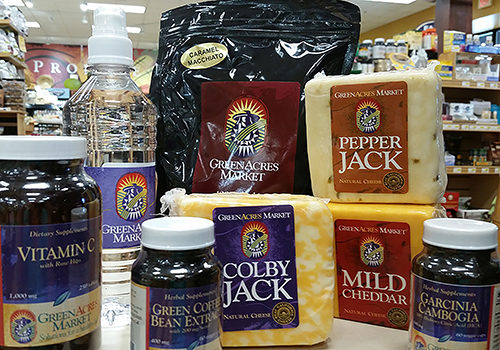What’s in a name? If it’s your own store brand, it’s everything. Or, it should be—especially now.
Private Label in Perspective
It’s a good bet that the shelves in the supermarket closest to you are weighed down by its own private label natural/organic brand. Consider this: Stop & Shop and Giant Food Stores have Nature’s Promise, Sam’s Club has Member’s Mark and Kroger has Simple Truth, among others. Although this isn’t news, it paints a colorful portrait of just how powerful a store brand can be.
According to a report from Packaged Facts titled, Private Label Foods and Beverages in the US, 8th Edition, nearly one-fifth of $530 billion in total food and beverage sales in 2013 were private label products; approximately $102 billion were spent on store brands that year, chalking up a modest 2% growth.
Packaged Facts projects that retail dollar sales of private label food and beverages will expand by a compound annual growth rate of 4% and reach $122 billion in 2018. The increase is due in part to the segment’s attractiveness to consumers seeking to eat healthy on a budget. Sales of private label food are expected to reach $98 billion.
Packaged Facts Research Director David Sprinkle observes, “Store brands have moved far beyond cheap generic knock-offs to become trusted, quality lines that can compete effectively with national brands. They usually have higher profit margins for retailers than name brands, help differentiate a retailer from competition, and help build consumer loyalty.”
The Nielsen Global Survey of Private Label (November 2014) backs this up. According to its report, perceptions of private label are highly favorable globally. Approximately 71% of respondents felt that store-brand quality has improved over time, and price is a key purchase motivator along with quality. Furthermore, 67% say that private labels provide extremely good value for their money.
Investing in Private Labeling
Beyond customers’ acceptance and quality opinions of private labels, there are other reasons to invest in a store brand if you don’t have one, or to potentially revise, renovate and expand what you may already have. According to the website of private label manufacturer Reliance Private Label Supplements (reliancevitamin.com), “Your competition is everywhere, so it’s critical that you retain your customers and create new ones. Developing a private brand can help you grow customers six times faster, avoid head-to-head pricing wars, and be more self reliant.”
It continues, “private brands have high levels of customer satisfaction and customer loyalty, and help you retain customers and create new ones.” According to 2010 data from the Private Label Manufacturers Association (PLMA), store brands are growing sales up to six times faster than national brands through existing and new-customer growth. Data from the Ipsos-MORU Nationwide Study 2009 cited on the Reliance website demonstrate that a store brand can help the retailer retain up to 70% of its customer base.
Because the private label is firmly within your control, Reliance emphasizes that, “Your brand will never help to build supermarket, pharmacy or other mass market businesses.” Reliance adds, “it will not help build large natural brands, which are sold by your competition at deep discounts. Your brand can never be sold on the internet unless you choose to do it yourself. Your private brand is yours and it will always help you be more self reliant.”
Another factor that plays well for self-reliance, says Regina Flight, private label supervisor at NOW Foods, Bloomingdale, IL, is the ability to push quality, compliance and rigorous testing. She states, “This year, with all of the media coverage raising questions about dietary supplement product quality and testing, retailers who promote their store labels from the quality position will increase the likelihood the customer will buy their products.”
Paul Licata, president of Licata Enterprises, Huntington Beach, CA, points to value as a motivator for purchase, which is galvanizing the growth of private label. With the economy still in recovery, consumers are still seeking the best bang for the buck that doesn’t compromise on quality, he observes. “Further, the acceptance of private label in more and more areas is growing. Private label in natural stores has evolved to compete on an even basis with the national brands on quality and maintains its competitive edge in pricing and value,” he comments.
In the viewpoint of Jonathan Bechtel, CEO of Health Kismet, Portland, OR, private labeling in the naturals arena is “poised to be pretty good since going private label improves your unit economics and it gives you a little more options than living and dying by your distributor.”
Bechtel also observes that private label providers are doing a better job of launching more unique products as well. “They’re less generic and more likely to use remarkable ingredients, so they’ve upped their game quite a bit in this regard.” Indeed, private label manufacturers are keen to use the more sophisticated technologies that enhance absorption, more compliant-friendly delivery systems such as chews and gummies, and patented branded ingredients touting significant scientific portfolios.
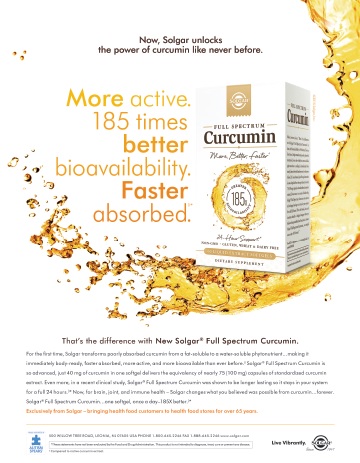 Consumers are paying attention, buying into store brands more easily and with higher levels of trust, sources assert. Flight cites SPINS data that private label is ranked second in growth in total vitamins in the naturals channel. “Consumers are buying more into decent supplements they can get at a cheaper price,” Bechtel states. “That’s what they buy on now; they really don’t care if it’s a store brand or not. But they’re low on cash and really need healthy products. If your store brand does that you’ll win.”
Consumers are paying attention, buying into store brands more easily and with higher levels of trust, sources assert. Flight cites SPINS data that private label is ranked second in growth in total vitamins in the naturals channel. “Consumers are buying more into decent supplements they can get at a cheaper price,” Bechtel states. “That’s what they buy on now; they really don’t care if it’s a store brand or not. But they’re low on cash and really need healthy products. If your store brand does that you’ll win.”
Yet many customers, especially first-timers, may need more motivation. Flight believes that personal interaction between you or your employees and the customer will engender the growth of trust and respect that will frequently result in store brand purchases interspersed with name brands in their carts or baskets. “This is particularly apparent with stores that actively educate their staff,” she emphasizes.
Now more than ever, consumers are influenced by the Internet and through years of such influence, have developed thought and buying behaviors, some of which may be born of misinformation or a strengthening desire for instant gratification. As such, this plays a role in in-store, face-to-face active selling. “I think that because of the rise of the internet, the assumption that anything can be done at a moment’s notice is expected more from younger buyers,” says Licata. “And because shoppers see something on Amazon.com, they assume you should have the same available in a private label and retailers should be able to make their standard 50% plus gross margin. Many younger buyers think that because the latest and greatest raw material has come out, it should be immediately available in private label. Older buyers have been through ups and downs of fast-and slow-selling products and realize that not everything will be a good seller and are more likely to wait before jumping on every new bandwagon.”
Getting to the Launch Pad
Those new to store brands may be intrigued about launching their own products. Bear in mind, says Licata, that a private label manufacturer with in-stock items (as opposed to a custom manufacturer) carries products that will sell well across a variety of customer types. First, he says, determine who your audience is mainly composed of. Do you want a full line, just a low-priced smaller line of best sellers, or a specialty line at a higher price? Suppliers can help you select what is most suitable to start with.
As such, Flight believes it is best to start with the top-selling products. “Probiotics and digestive products are seeing huge growth, along with nutritional oils and essential oils,” she states. As your customers become more receptive to your store brand, Flight notes, “branching out beyond obvious top sellers into staples like multivitamins and individual vitamins makes sense. I’d also suggest looking at what is seeing rapid growth, like curcumin, and offering that in private label.”
Bechtel notes that fish oils are definitely a “must” supplement, but they must be refined and contain large amounts of EPA and DHA. Also, he recommends activated vitamins, such as methyl folate, P5P and methyl B12, as well as whole-food supplements, such as greens powders and meal-replacement powders, for those actively seeking to lose weight while engaging in heavier fitness routines.
For the “average” store, Licata recommends starting with 20–40 basic supplements with vitamins A, B, C, E and multiples plus a few herbs and specialties. Then, begin adding more formulas to make a broader line every few months when most appropriate, depending on sales velocity and turnover. “This way, you can create newness and a focus for your customers on your line and show how you keep investing” says Licata. “It creates an excitement with your customers and your employees to keep focusing on your private label.”
Those of you who have had store brands for some time, but feel as though they may have been stagnating, the outlook is certainly not bleak. It’s just time to revive. Take a critical review of which store brand supplements (and foods/beverages) sell consistently, and which have slowed down or never really performed well at all. Start discounting the slow movers and the non-movers to use up the last of the inventory.
Then, meet with your private label rep to discuss what’s new, Licata suggests. You may also want to see what other regularly branded supplements are increasing in velocity and demand, and consider your own branded contender.
But, don’t just fill up your shelves “with a bunch of products that lack an identity,” says Bechtel. “Focus on products that have unique characteristics, even if it crunches your unit economics. Unit economics come second. Having something remarkable comes first. This always costs more upfront but pays in the long run.”
When you have inventory you think is on point, think about accelerating sales velocity with creative bundling. Licata offers, “Combine several formulas together on your shelves or your own package to create a new formula [i.e., take a multiple, GTF chromium and cinnamon, for example, and make a special package deal if a customer buys all three products for blood sugar support].”
Other refreshing techniques from Licata include: moving products in your store to different locations; putting your private label on sale a few products a month and training employees to show your private label products first when a customer asks what’s most suitable for his/her particular need(s).
|
GMPs and Private Label Before retailers venture into the brave new world of private label, they should remember that FDA shifts responsibility on the shoulders of the retailer to sell GMP-compliant products. A May 2013 warning letter highlighted the agency's stance that distributors that contract with other manufacturers under your name must make sure all GMPs are followed. Make sure they are compliance and conducting all the necessary analytical testing of raw and finished goods. And, make sure their testing records and SOPs are properly documented. Retailers that have questions can contact a regulatory attorney or a trade group like the Natural Products Association for guidance. |
Visually, Flight says, try using a color scheme in your store to highlight your brand; the most sensible is taking colors from your store logo. “It’s important to keep a store looking fresh and well maintained anyway, but creative merchandising attracts attention. Set up seasonal displays, for example, and include the store brand in the array of products showcased,” she suggests.
Retailers with older brands often believe that a package/logo redesign will increase sales, but if it’s truly outdated and amateurish, Licata says, not so fast: “In our more than 50 years experience, rarely does that ever happen. In large chains, it is more likely to increase sales as there is generally less consistent consumer interaction. But, in most small to medium stores and chains, it is the relationship with the store and customer that is more important that gives the value to their private label.”
Meanwhile, if sales history still doesn’t sway one way or another, choosing the most appropriate balance of private label supplements for your store can be tricky. Do you go with more faddish supplements (raspberry ketones), or the more conservative, older tried-and-true (vitamin C)? Actually, there are ways to combine both types successfully that shows you believe and invest in what works (tried and true) and also remain on the cutting-edge of what is new and exciting.
“You should be able to react quickly to certain situations, but you should be responsible on the types of products that you bring in,” says Flight. When considering a supplement that seems to have risen out of the blue, she suggests checking PubMed and other credible sources to find supporting science, as your store brand must be synonymous with delivering benefits so they keep selling. “The key is to keep your inventory at manageable levels. The retailer that maintains a proper balance between a conservative approach and selling the latest supplement fad continues to see growth at a steady pace,” she says.
Licata believes it is important to keep updated about new supplements because customers expect it of you. But you must also know what you are buying and determine if it really will provide efficacious benefits for your customers. “For example, this summer, a raw material supplier was colorfully touting that its new ingredient was far superior than the previous incarnation—and it had clinical results to prove this claim. But when actually reading the data on the chart provided, it appeared as if the ingredient really increased absorption. It did—by 5%. Now, a 5% ‘better product’ for 40% higher cost may not be worth adding. So, the key retailer would know this, have the data on hand and be able to explain to their customer the truth. Most people would not pay 40% for just a 5% increased absorption and they will remember and appreciate your store for being honest,” he explains.
Private label suppliers also continue to add to their inventories to keep retailer inventories fresh. New from NOW are probiotics, essential oils and amino acids. Licata Enterprises now offers Gluten Comfort Enzymes (digests hidden wheat and gluten), Non-GMO Lecithin softgels, and Sleeptight (formula to help relax and sleep better). Health Kismet is set to launch Incredible Mood.
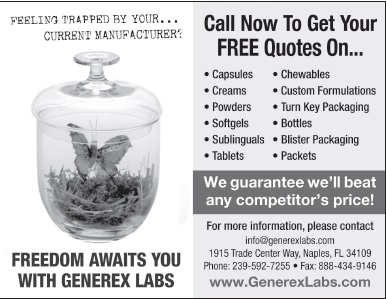 Retailer Perspectives
Retailer Perspectives
Retailers we spoke with have had varied experiences with private label. They all invested in it for varied reasons as well. Debra’s Natural Gourmet of Concord, MA, had a store brand about 20 years ago, gave up on it a few years into it due to poor sales, long delivery times and a feeling that it was rather worthless, reports Adam Stark, chief miscellaneous officer. “We revisited the issue several years ago after our founder, Debra, spent some quality time with an executive from Vitamer at NPA (then NNFA) at Lobby Day. The fact that this guy and his company was so committed to our industry was the deciding factor. It was really about integrity.”
After the Vitamer products, mostly vitamins and minerals, fish oils and basic formulas, performed well, Debra’s Natural Gourmet expanded to include some supplements from Reliance such as
condition-specific formulas (cholesterol, blood pressure and allergy support and a children’s chewable) that filled niches in between Vitamer products and then brought Vitality Works (VW) on board for tinctures. Stark says he likes VW’s ability to custom formulate. “About two years ago, we brought packaged nuts and nut butters on board from Tierra Farms because we liked dealing with them already, and it saved us labor on bulk,” he says.
James Fallon, owner/supplement researcher and buyer of JC Health Foods, Jefferson City, MO, bought the line 11 years ago from the original owner, who already had a large array of store brand supplements from Reliance. These include: Vitamin C (regular, ascorbic varieties and his “fave,” patented Pure Way C), B Complex, several multivitamins, various minerals, cal/mag combo, Vitamin D (from 400 IU to 2000 IU), vitamin E, singular herbs, condition-specific combinations, digestive enzymes and more.
The primordial private label foray for Green Acres Markets (KS, MO, OK) was its store brand water over 10 years ago. According to Shannon Hoffman, president and CFO, the water was a great tool to build case stacks, hand out at events and to provide an appearance of its brand throughout the store. At that time, too, the water category was much, much smaller; “now, with so many functional water, ours is positioned as a clean, everyday, quick on-the-run water option,” she comments.
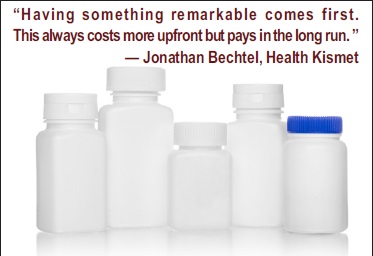
Green Acres Markets eventually invested in a private label vitamin line, which the retailer positions as a quality value option. As a chain, says Hoffman, Green Acres Markets always heavily partners with brand lines that provide her store staff with consistent education, training, support and innovative products. “This has allowed us to maintain our reputation as ‘the healthy food experts’ and consumers come to us for solutions,” she explains. “We trust the brands we partner with—and we have found that unless you can buy in extremely large quantities, to bring in new innovative items, the private label lines are better for everyday items at a lower cost.”
Interestingly, the chain also offers a store-brand block cheese selection, courtesy of a partnership with a local distributor that packs it and labels it. “Customers love it—they frequently use it for events or sandwiches, it has great flavor,” Hoffman says. “We also have a private label coffee line (fair trade) in all of our stores. We work with local coffee roasters to develop signature coffee lines.”
These retailers are continuously reviewing and expanding their store brand products. JC Health Foods has added “quite a bit” during the past decade or so, and has also added a second private label source (Back To Health/Independent Nutrition, Eugene, OR) with about 15 SKUs two years ago, Fallon reports. “We will continue to add as we go on. The rep enticed me with the quality and the use of only rice flour as filler, no magnesium stearate, etc.,” he states.
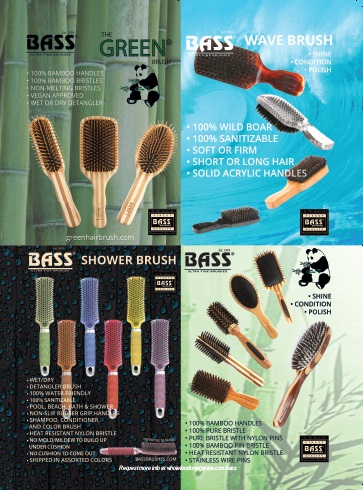 Green Acres, says Hoffman, just recently ventured into a private label bulk line. “People are always looking for unique mixes and great snacks—so we’ve been able to afford developing our own bulk offerings now that we have eight stores. We will continue to expand these offerings,” she says.
Green Acres, says Hoffman, just recently ventured into a private label bulk line. “People are always looking for unique mixes and great snacks—so we’ve been able to afford developing our own bulk offerings now that we have eight stores. We will continue to expand these offerings,” she says.
Much of the retailers’ enthusiasm to continue to manage and grow their store brands stems from their customers’ embracing the brand, which exemplifies a stronger loyalty to the retailer as well as a sturdy commitment to their health and well-being.
At Debra’s Natural Gourmet, Stark is pleased with customers’ trust in the store brand, quipping, “Sometimes, in the supplements department, customers show more loyalty to our store brand supplements than they deserve! Even when a house brand product is higher-priced or otherwise inferior to a ‘name brand,’ a customer will sometimes insist on the house brand—sometimes out of loyalty, i.e., ‘I want to support you.’”
Helpful hint: when a customer expresses such a sentiment, ask for permission to quote him or her for your social media and/or newsletters. An authentic anecdote or testimonial is priceless word-of-mouth.
At Green Acres, Hoffman notes that the chain’s private label lines have been appealingly steady; it helps expand brand awareness throughout the store without converting the whole store into a private label brand. She states, “Customers can still find their favorite items that they have built a relationship with over the years and also enjoy selecting items that are under the Green Acres house brand. We like this approach as it allows us to continue our loyalty to brands in the industry.”
While it is encouraging to witness consumer loyalty and interaction with your store brand, exercising some caution as to what has your label on it is highly advised. “I don’t want to put anything on our shelves with our label that isn’t top quality or that otherwise doesn’t live up to its billing,” Stark emphasizes. “For example, when a private label manufacturer sells a product named Ultimate Heart Formula, I won’t carry it, unless it really is ‘ultimate.’”
Hoffman provides some sound advice for retailers with a store brand or those seriously considering launching one. “Once you start a store brand, you have to stick with it to build any type of loyalty, so be ready for that. You have to be able to buy in very large quantities in order to get a competitive price, as most ‘house brands’ are positioned as the value/lower-priced option.”
Once you have your selection, spotlight it generously in your social media and in-store. Encourage trials by offering first-time discounts and train staff to ask for feedback.
So, go ahead, set your store on “private!” WF
Lisa Schofield is a freelance writer based in Freehold, NJ.
Published in WholeFoods Magazine December 2015


